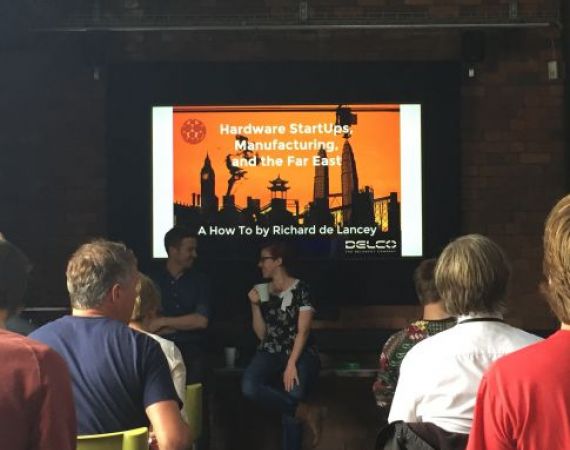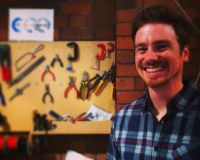Lunchtime talk write-up
Posted on Tue 21 Jul 2015
Hardware Startups, Manufacturing, and the Far East: a how to
On Friday 17 July, former resident Richard de Lancey returned to the studio to offer us an insight into his new career in Kuala Lumpur as a manufacture and product design consultant, operating under the name Delco.

Hardware Startups, Manufacturing, and the Far East: a how to
Posted by
Speaker

Richard de Lancey
Richard de Lancey (aka deL) is a product design engineer.deL was a cofounder of nu desine, where he designed and engineered the AlphaSphere and took it into production. He has also worked on a number of other products ranging from Luke Jerram's pixelated sculpture, Maya, to the redesign of a…On Friday 17 July, former resident Richard de Lancey returned to the studio to offer us an insight into his new career in Kuala Lumpur as a manufacture and product design consultant, operating under the name Delco. Richard (or DeL to his friends) had been a resident of the studio for 4 years before he ventured to Malaysia to explore the benefits within their manufacturing industry. Recognising a demand to bridge the gap between UK product designers and manufacturers, he emigrated and has been building relationships with choice manufacturing partners for the past year. DeL introduced us to the potential and pitfalls of hardware startups, and the attraction of the Far East. Here are five things I learned during his talk:
1. Following the ‘boom’ in software at the very beginning of this century, the demand for hardware is on the up. Consumers desire tangible, ownable purchases, and producers - in particular, startups – have the ability to gauge that demand and create a market thanks to crowd-funding services, such as Kickstarter.
2. Whilst the UK is arguably the optimum choice for quality manufacture, it also comes at a high cost. For startups who have high production volumes and a modest budget, the wise option may be to head to the Far East.
3. Malaysia weighs in as a happy medium between UK and Chinese manufacture, as costs are lower than UK without too high a compromise on facilities, communication, control, intellectual property security, quality or the necessity for high volumes - as can be the case in China.
4. The ethnic makeup of Malaysia’s population is greatly diverse, and English is a widely spoken language. This can allow UK-to-Malaysian business more efficient and reduces the risk of miscommunication.
5. There is controversy surrounding the ethics and exploitation involved in Far East manufacture, but there has been a noticeable shift in conditions in recent years. DeL is keen to work with manufacturers with robust and fair employment practises, and an environmental consciousness in production. There is hope that the growing demand for ethical practise will encourage and incentivise manufacturers to adhere to these standards in the future.
